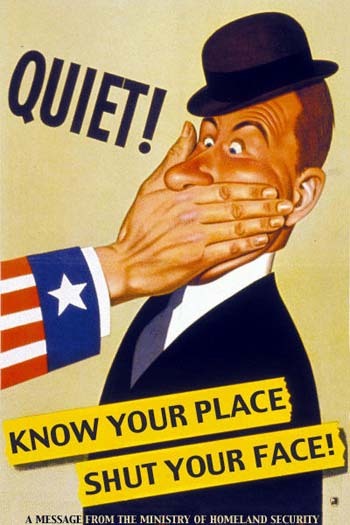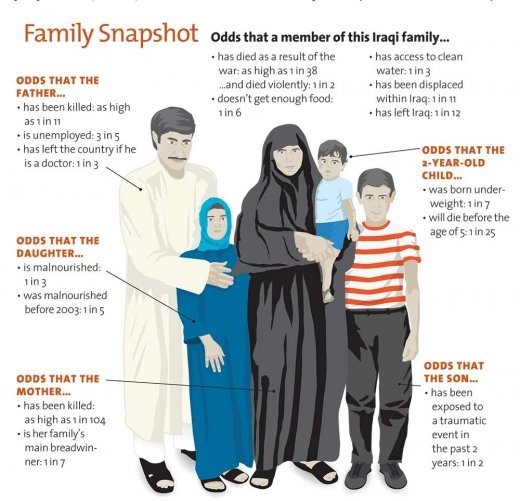
#1. Over One Million Iraqi Deaths Caused by US Occupation
Over one million Iraqis have met violent deaths as a result of the 2003 invasion, according to a study conducted by the prestigious British polling group, Opinion Research Business (ORB). These numbers suggest that the invasion and occupation of Iraq rivals the mass killings of the last century—the human toll exceeds the 800,000 to 900,000 believed killed in the Rwandan genocide in 1994, and is approaching the number (1.7 million) who died in Cambodia’s infamous “Killing Fields” during the Khmer Rouge era of the 1970s. Authors Joshua Holland and Michael Schwartz point out that the dominant narrative on Iraq—that most of the violence against Iraqis is being perpetrated by Iraqis themselves and is not our responsibility—is ill conceived. Interviewers from the Lancet report of October 2006 (Censored 2006, #2) asked Iraqi respondents how their loved ones died. Of deaths for which families were certain of the perpetrator, 56 percent were attributable to US forces or their allies. Schwartz suggests that if a low pro rata share of half the unattributed deaths were caused by US forces, a total of approximately 80 percent of Iraqi deaths are directly US perpetrated.
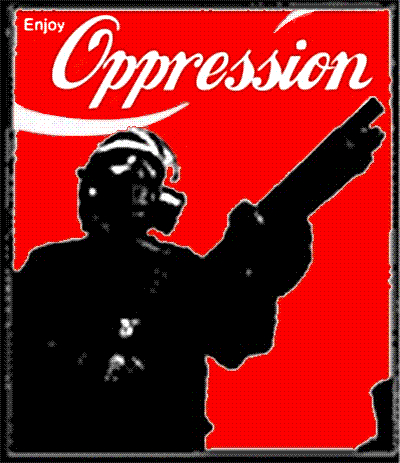
# 2 Security and Prosperity Partnership: Militarized NAFTA
Leaders of Canada, the US, and Mexico have been meeting to secretly expand the North American Free Trade Agreement (NAFTA) with “deep integration” of a more militarized tri-national Homeland Security force. Taking shape under the radar of the respective governments and without public knowledge or consideration, the Security and Prosperity Partnership (SPP)—headquartered in Washington—aims to integrate the three nations into a single political, economic, and security bloc.
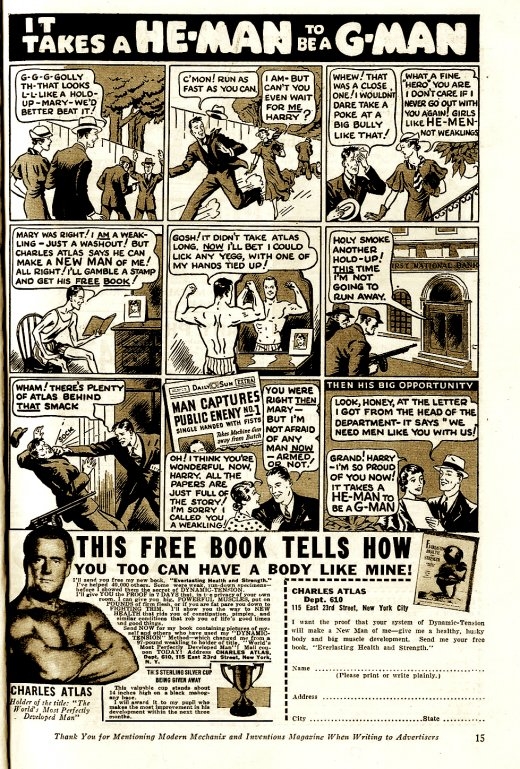
# 3 InfraGard: The FBI Deputizes Business
More than 23,000 representatives of private industry are working quietly with the FBI and the Department of Homeland Security (DHS) to collect and provide information on fellow Americans. In return, members of this rapidly growing group, called InfraGard, receive secret warnings of terrorist threats before the public, and at times before elected officials. “There is evidence that InfraGard may be closer to a corporate Total Information Awareness program (TIPS), turning private-sector corporations—some of which may be in a position to observe the activities of millions of individual customers—into surrogate eyes and ears for the FBI,” according to an ACLU report titled “The Surveillance-Industrial Complex: How the American Government Is Conscripting Businesses and Individuals in the Construction of a Surveillance Society.”
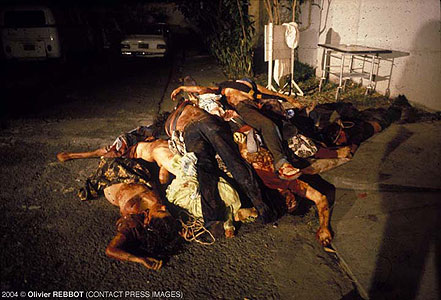
[Death squad victims, El Salvador, 1981, by OLIVIER REBBOT]
# 4 ILEA: Is the US Restarting Dirty Wars in Latin America?
A resurgence of US-backed militarism threatens peace and democracy in Latin America. By 2005, US military aid to Latin America had increased by thirty-four times the amount spent in 2000. In a marked shift in US military strategy, secretive training of Latin American military and police personnel that used to just take place at the notorious School of the Americas, in Fort Benning, Georgia—including torture and execution techniques—is now decentralized. The 2008 US federal budget includes $16.5 million to fund an International Law Enforcement Academy (ILEA) in El Salvador, with satellite operations in Peru. With provision of immunity from charges of crimes against humanity, each academy will train an average of 1,500 police officers, judges, prosecutors, and other law enforcement officials throughout Latin America per year in “counterterrorism techniques.”

# 5 Seizing War Protesters’ Assets
President Bush has signed two executive orders that would allow the US Treasury Department to seize the property of any person perceived to, directly or indirectly, pose a threat to US operations in the Middle East. The first of these executive orders, titled “Blocking Property of Certain Persons Who Threaten Stabilization Efforts in Iraq,” signed by Bush on July 17, 2007, authorizes the Secretary of Treasury, in consultation with the Secretary of State and the Secretary of Defense, to confiscate the assets of US citizens and organizations who “directly or indirectly” pose a risk to US operations in Iraq.
# 6 The Homegrown Terrorism Prevention Act
In a startling affront to American freedoms of expression, privacy, and association, the Violent Radicalization and Homegrown Terrorism Prevention Act (H.R. 1955) passed the House on October 23, 2007, by a vote of 404–6. The Senate is currently considering a companion bill, S. 1959. The act would establish a national commission and a university-based “Center for Excellence” to study and propose legislation to prevent the threat of “radicalization” of Americans. Author of the bill Jane Harman (D-CA) explains, “We’re studying the phenomenon of people with radical beliefs who turn into people who would use violence.”

# 7 Guest Workers Inc.: Fraud and Human Trafficking
While the guest worker program in the United States has been praised and recommended for expansion by President Bush, and is likely to be considered by Congress as a template for future immigration reform, human rights advocates warn that the system seriously victimizes immigrant workers. Workers, labor organizers, lawyers, and policy makers say that the program, designed to open up the legal labor market and provide a piece of the American dream to immigrants, has instead locked thousands into a modern-day form of indentured servitude. Congressman Charles Rangel has called the guest worker program “the closest thing I’ve ever seen to slavery.”
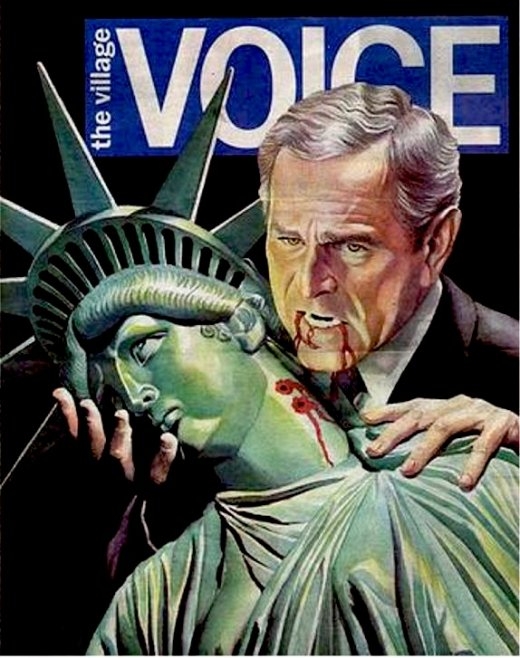
# 8 Executive Orders Can Be Changed Secretly
On December 7, 2007, Senator Sheldon Whitehouse, as a member of the Senate Intelligence Committee, disclosed on the floor of the US Senate that he had declassified three legal documents of the Office of Legal Counsel (OLC) within the Department of Justice that state: 1. An executive order cannot limit a president. There is no constitutional requirement for a president to issue a new executive order whenever he wishes to depart from the terms of a previous executive order. Rather than violate an executive order, the president has instead modified or waived it. 2. The President, exercising his constitutional authority under Article II, can determine whether an action is a lawful exercise of the President’s authority under Article II. 3. The Department of Justice is bound by the President’s legal determinations. Whitehouse discovered the OLC’s classified legal opinions while researching the Protect America Act legislation passed in August 2007, which Whitehouse warns will allow the administration to bypass Congress and the Courts in order to facilitate unchecked spying on Americans. He noted that for years under the Bush administration, the Office of Legal Council has been issuing highly classified secret legal opinions related to surveillance.

#9 Iraq and Afghanistan Vets Testify
Iraq and Afghanistan war veterans are coming forward to recount the brutal impact of the ongoing occupations. An investigation by the Nation (July 2007) and the Winter Soldier hearings in Silver Spring, Maryland, in March 2008, which was organized by Iraq Veterans Against the War and brought together over 300 veterans, have made their experiences public. Soldiers’ harrowing testimony of atrocities they witnessed or participated in directly indicate a structural problem in the US military that has created an environment of lawlessness. Some international law experts say the soldiers’ statements show the need for investigations into potential violations of international law by high-ranking officials in the Bush administration and the Pentagon. Though BBC predicted that the Winter Soldier event would dominate headlines around the world that week, there was a near total back-out on this historic news event by the US corporate media.
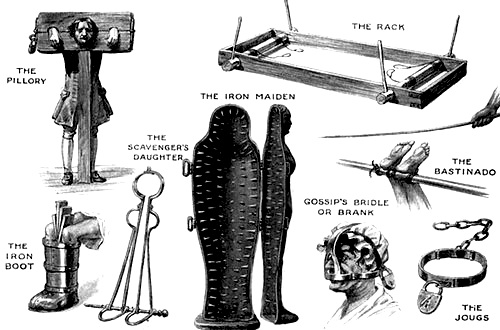
# 10 APA Complicit in CIA Torture
When in 2005 news reports exposed the fact that psychologists were working with the US military and the CIA to develop brutal interrogation methods, American Psychological Association (APA) leaders assembled a task force to examine the issue. After just two days of deliberations, the ten-member task force concluded that psychologists were playing a “valuable and ethical role” in assisting the military. A high level of secrecy surrounding the task force prohibited disclosure of the proceedings and of members and attendees. It wasn’t until a year later that the membership was finally published on Salon.com, revealing that six of nine voting members were from the military and intelligence agencies with direct connections to interrogations at Guantánamo and CIA black sites that operate outside of Geneva Conventions.

# 11 El Salvador’s Water Privatization and the Global War on Terror
Salvadoran police violently captured community leaders and residents at a July 2007 demonstration against the privatization of El Salvador’s water supply and distribution systems. Close range shooting of rubber bullets and tear gas was used against community members for protesting the rising cost, and diminishing access and quality, of local water under privatization. Fourteen were arrested and charged with terrorism, a charge that can hold a sixty-year prison sentence, under El Salvador’s new “Anti-terrorism Law,” which is based on the USA PATRIOT Act. While criminalization of political expression and social protest signals an alarming danger to the peace and human rights secured by Salvadorans since its brutal twelve-year civil war, the US government publicly supports the Salvadoran government and the passage of the draconian anti-terrorism law that took effect October 2006. Salvadorans, however, maintain that fighting for water is a right, not a crime.
# 12 Bush Profiteers Collect Billions From No Child Left Behind
The architect of No Child Left Behind (NCLB), President Bush’s first senior education advisor, Sandy Kress, has turned the program, which has consistently proven disastrous in the realm of education, into a huge success in the realm of corporate profiteering. After ushering NCLB through the US House of Representatives in 2001 with no public hearings, Kress went from lawmaker—turning on spigots of federal funds—to lobbyist, tapping into those billions of dollars in federal funds for private investors well connected to the Bush administration.
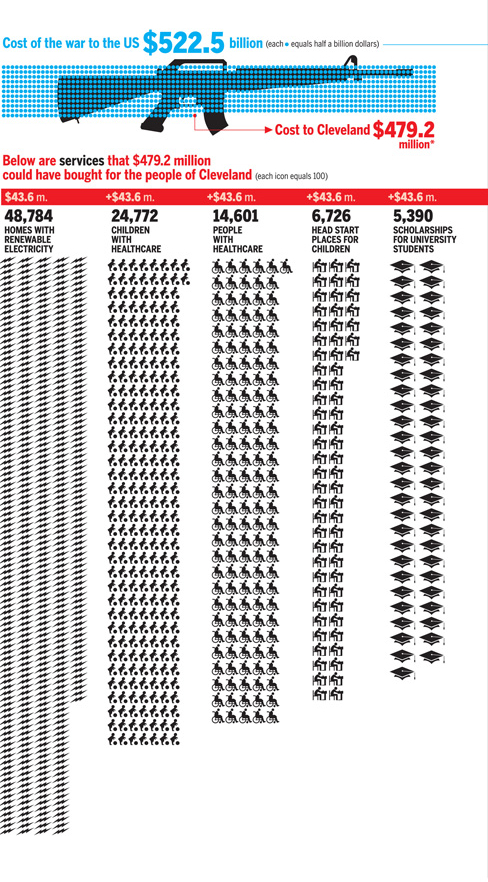
# 13 Tracking Billions of Dollars Lost in Iraq
Beginning in April 2003, one month after the invasion of Iraq, and continuing for little more than a year, the United States Federal Reserve shipped $12 billion in US currency to Iraq. The US military delivered the bank notes to the Coalition Provisional Authority, to be dispensed for Iraqi reconstruction. At least $9 billion is unaccounted for due to a complete lack of oversight. When the US military delivered the cash to Baghdad, the money passed into the hands of an entirely new set of players—the Coalition Provisional Authority (CPA). The CPA had been hastily created by the Pentagon to serve as the interim government in Iraq. On May 9, 2003, President Bush appointed L. Paul Bremer III as CPA administrator. Over the next year, a compliant Congress gave $1.6 billion to Bremer to administer the CPA. This was over and above the $12 billion in cash that the CPA had been given to disburse from Iraqi oil revenues and unfrozen Iraqi assets.
Few in Congress had any idea about the true nature of the CPA as an institution. Lawmakers had never discussed the establishment of the CPA, much less authorized it—odd, given that the agency would be receiving taxpayer dollars. Confused members of Congress believed that the CPA was a US government agency, which it was not, or that at the very least it had been authorized by the United Nations, which it had not. The Authority was in effect established by edict outside the traditional framework of American government. Because it was a rogue operation, no one was responsible for what happened to that money. Accountable to no one, its finances “off the books” for US government purposes, the CPA provided an unprecedented opportunity for fraud, waste, and corruption involving American government officials, American contractors, renegade Iraqis, and many others. In its short life more than $23 billion would pass through its hands.

# 14 Mainstreaming Nuclear Waste
Radioactive materials from nuclear weapons production sites are being dumped into regular landfills, and are available for recycling and resale. The Nuclear Information and Resource Service (NIRS) has tracked the Department of Energy’s (DOE) release of radioactive scrap, concrete, equipment, asphalt, chemicals, soil, and more, to unaware and unprepared recipients such as landfills, commercial businesses, and recreation areas. Under the current system, the DOE releases contaminated materials directly, sells them at auctions or through exchanges, or sends the materials to processors who can release them from radioactive controls. The recycling of these materials—for reuse in the production of everyday household and personal items such as zippers, toys, furniture, and automobiles, or to build roads, schools, and playgrounds—is increasingly common.

Twenty-seven million slaves exist in the world today, more than at any time in human history. Globalization, poverty, violence, and greed facilitate the growth of slavery, not only in the Third World, but in the most developed countries as well. Behind the façade in any major town or city in the world today, one is likely to find a thriving commerce in human beings. As many as 800,000 are trafficked across international borders annually, and up to 17,500 new victims are trafficked across US borders each year, according to the US Department of Justice (DOJ). More than 30,000 additional slaves are transported through the US on their ways to other international destinations. Attorneys from the DOJ have prosecuted ninety-one slave trade cases in cities across the United States and in nearly every state of the nation.
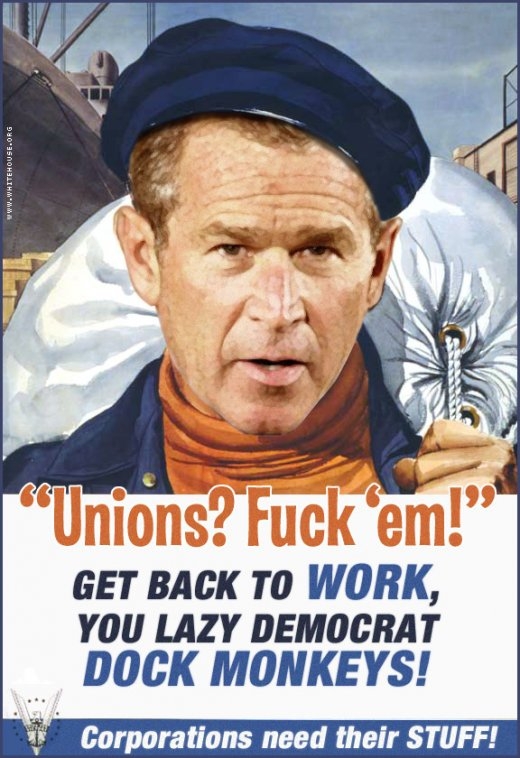
# 16 Annual Survey on Trade Union Rights
The first Annual Survey of Violations of Trade Union Rights to be published by the year-old International Trade Union Confederation (ITUC) documents enormous challenges to workers rights around the world. The 2007 edition of the survey, covering 138 countries, shows an alarming rise in the number of people killed as a result of their trade union activities, from 115 in 2005 to 144 in 2006. Many more trade unionists around the world were abducted or “disappeared.” Thousands were arrested during the year for their parts in strike action and protests, while thousands of others were fired in retaliation for organizing. Growing numbers of trade union activists in Africa, the Americas, Europe, Asia, and the Pacific are facing police brutality and murder as unions are viewed as opponents of corporatist governments. Colombia is still the deadliest country in the world for trade unionists. In 2006, seventy-eight people were murdered because of their union activities, an increase of eight from the previous year. There is strong and disturbing evidence of government involvement in these killings. Of 1,165 recorded crimes against trade unionists in Colombia, just fifty-six went before the courts, and only ten resulted in sentences.

# 17 UN’s Empty Declaration of Indigenous Rights
In September 2007, the United Nations General Assembly adopted the Universal Declaration on the Rights of Indigenous Peoples. The resolution called for recognition of the world’s 370 million indigenous peoples’ right to self-determination and control over their lands and resources. The adoption of this resolution comes after twenty-two years of diplomatic negotiations at the United Nations (UN) involving its member states, international civil society groups, and representatives of the world’s aboriginal communities. The declaration emphasizes the rights of indigenous peoples to maintain and strengthen their institutions, cultures, and traditions, and to pursue their development in keeping with their own needs and aspirations. The declaration was passed by an overwhelming majority vote of 143–4. Only the United States, Canada, Australia, and New Zealand voted against the resolution, expressing the view that strong emphasis on rights to indigenous self-determination and control over lands and resources would hinder economic development and undermine “established democratic norms.”
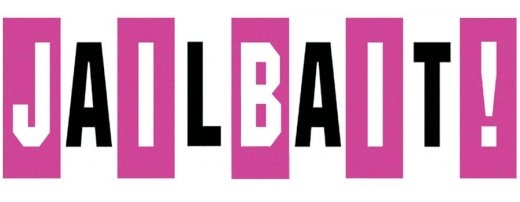
# 18 Epidemic of Cruelty and Death in Juvenile Detention Centers
In a nationally conducted survey, the Associated Press contacted each state agency that oversees juvenile correction centers and asked for information on the numbers of deaths as well as the numbers of allegations and confirmed cases of physical, sexual, and emotional abuse by staff members since January 1, 2004. According to the survey, more than 13,000 claims of abuse were identified in juvenile correction centers around the country from 2004 through 2007—a remarkable total given that the total population of detainees was about 46,000 at the time the states were surveyed in 2007.

# 19 Industrial Farming Triggering Widespread Extinction of Species
The industrial model of livestock production is causing the worldwide destruction of animal diversity. At least one indigenous livestock breed becomes extinct each month as a result of overreliance on select breeds imported from the United States and Europe, according to the study, “The State of the World’s Animal Genetic Resources,” conducted by the UN Food and Agriculture Organization (FAO). Since research for the report began in 1999, 2,000 local breeds have been identified as at risk. The industrial livestock breeding and production system that is being imposed on the world requires high levels of investment in technology and receives subsidies and other resources that have distorted the market. Consequences of the livestock industry’s globalization include the threat to sustainable development and global food security, destruction of the livelihoods of over one billion people worldwide, smallholder bankruptcies and suicides, and the extinction of some of the world’s hardiest breeds of animals.
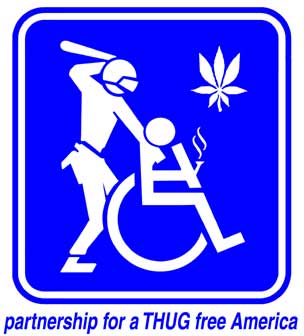
# 20 Marijuana Arrests Set New Record
For the fourth year in a row, US marijuana arrests set an all-time record, according to 2006 FBI Uniform Crime Reports. Marijuana arrests in 2006 totaled 829,627, an increase from 786,545 in 2005. At current rates, a marijuana smoker is arrested every thirty-eight seconds, with marijuana arrests comprising nearly 44 percent of all drug arrests in the United States. According to Allen St. Pierre, executive director of the National Organization for Reform of Marijuana Laws (NORML), over 8 million Americans have been arrested on marijuana charges during the past decade, while arrests for cocaine and heroine have declined sharply.
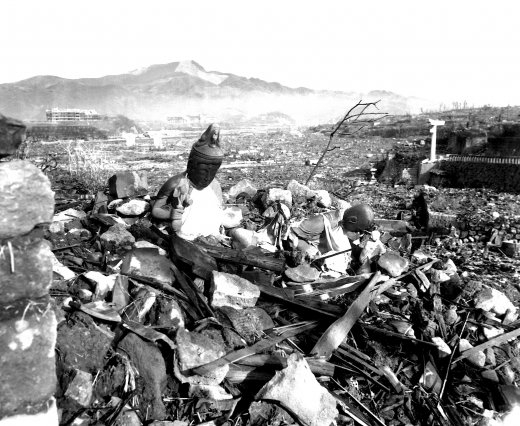
# 21 NATO Considers “First Strike” Nuclear Option
North Atlantic Treaty Organization (NATO) officials are considering a first strike nuclear option to be used anywhere in the world a threat may arise. Former armed force chiefs from the US, Britain, Germany, France, and the Netherlands authored a 150-page blueprint calling for urgent reform of NATO, and a new pact drawing the US, NATO, and the European Union (EU) together in a “grand strategy” to tackle the challenges of an “increasingly brutal world.” The authors of the plan insist that “the first use of nuclear weapons must remain in the quiver of escalation as the ultimate instrument to prevent the use of weapons of mass destruction.” The manifesto was presented to the Pentagon in Washington and to NATO’s secretary general in mid-January 2008. The proposals are likely to be discussed at a NATO summit in Bucharest in April 2008.
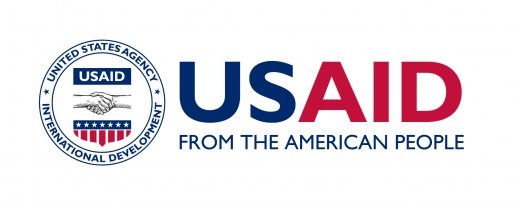
In August 2007, one of the biggest and best-known American charity organizations, CARE, announced that it was turning down $45 million a year in food aid from the United States government. CARE claims that the way US aid is structured causes rather than reduces hunger in the countries where it is received. The US budgets $2 billion a year for food aid, which buys US crops to feed populations facing starvation amidst crisis or enduring chronic hunger. CARE’s 2006 report, “White Paper on Food Aid Policy,” points out that the current food aid program is motivated by profit rather than altruism. The policy, which dictates that donated money be used to purchase food in the home country, results in a program driven by “the export and surplus disposal objectives of the exporting country” and not the needs of people in hunger.

# 23 FDA Complicit in Pushing Pharmaceutical Drugs
While the US Food and Drug Administration (FDA) turns a blind eye, drug companies are making false, unsubstantiated, and misleading claims in their advertising, often withholding mandated disclosure of dangerous side effects. Though companies are required to submit their advertisements to the FDA, the agency does not review them before they are released to the public. A Government Accountability Office report released November 2006 found that the FDA reviews only a small portion of the advertisements it receives, and does not review them using consistent criteria.
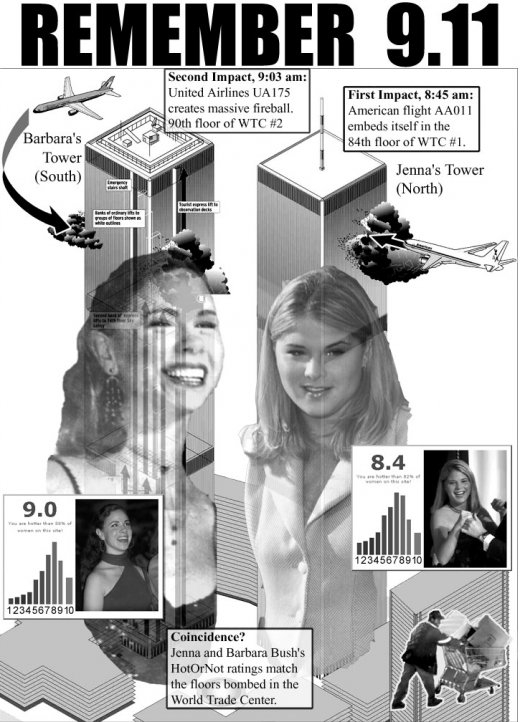
# 24 Japan Questions 9/11 and the Global War on Terror
Testimony in the Japanese parliament, broadcast live on Japanese television in January 2008, challenged the premise and validity of the Global War on Terror. Parliament member Yukihisa Fujita insisted that an investigation be conducted into the war’s origin: the events of 9/11. In a parliament Defense and Foreign Affairs Committee session held to debate the ethics of renewing Japan’s “anti-terror law,” which commits Japan to providing logistical support for coalition forces operating in Afghanistan, Fujita opened the session by stating, “I would like to talk about the origin of this war on terrorism, which was the attacks of 9/11, . . . When discussing these anti-terror laws we should ask ourselves, what was 9/11? And what is terrorism?” Fujita pointed out that, “So far the only thing the government has said is that we think it was caused by al-Qaeda because President Bush told us so. We have not seen any real proof that it was al-Qaeda.” He reminded parliament that twenty-four Japanese citizens were killed on 9/11, yet the mandate of a criminal investigation by the Japanese government never followed. “This is a crime so surely an investigation needs to be carried out,” said Fujita.

[Illustration by ALEX FINE]
# 25 Bush’s Real Problem with Eliot Spitzer
The exposure of New York State Governor Eliot Spitzer’s tryst with a luxury call girl had little to do with the Bush administration’s high moral standards for public servants. Author F. William Engdahl advises that, “in evaluating spectacular scandals around prominent public figures, it is important to ask what and who might want to eliminate that person.” Timing suggests that Spitzer was likely a target of a White House and Wall Street operation to silence one of its most dangerous and vocal critics of their handling of the current financial market crisis. Spitzer had become increasingly public in blaming the Bush administration for the subprime crisis. He testified in mid-February before the US House of Representatives Financial Services subcommittee and later that day, in a national CNBC interview, laid blame squarely on the administration for creating an environment ripe for predatory lenders. Curiously, Spitzer, who had been elected governor in 2006, defeating a Republican by winning nearly 70 percent of the vote, has been not charged with any crime. His case went into the hands of Washington and not those of New York State authorities, underscoring the clear political nature of Spitzer’s “offense.” New York Assembly Republicans immediately announced plans to impeach Spitzer or put him on public trial if he were to refuse resignation. Although prostitution is illegal in most US states, clients of prostitutes are almost never charged, nor are their names typically released while a case is in process.
[via PROJECT CENSORED]

